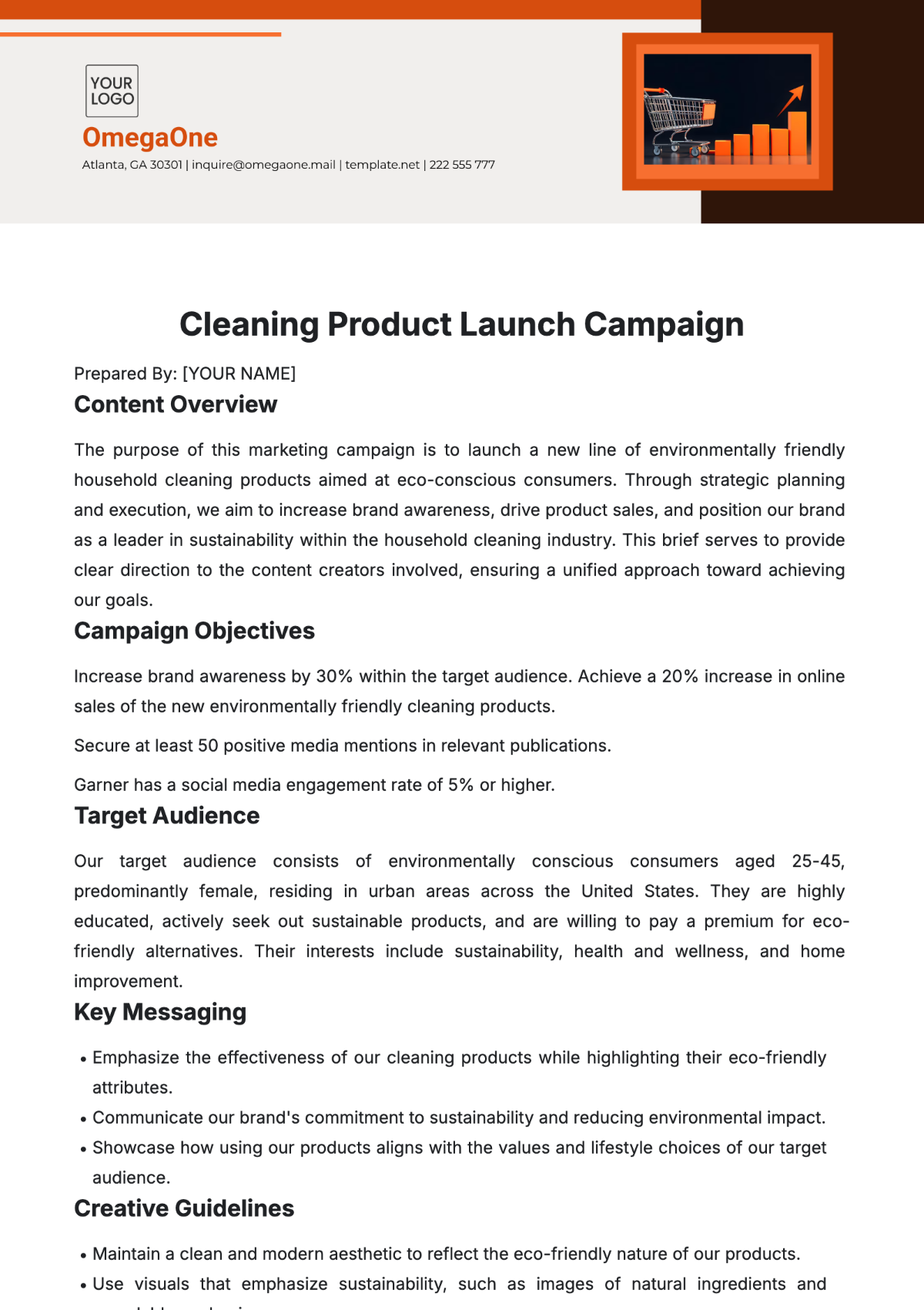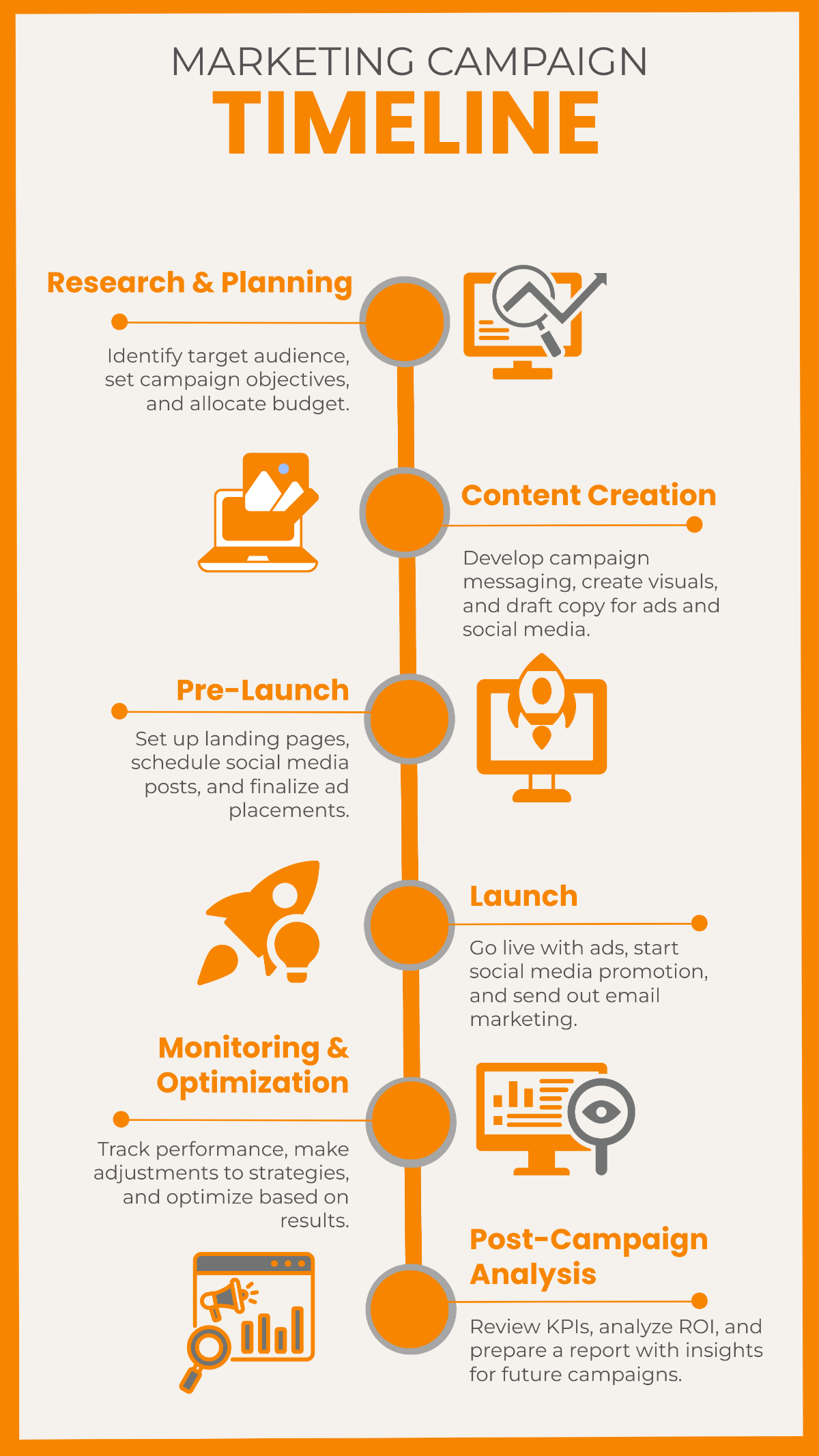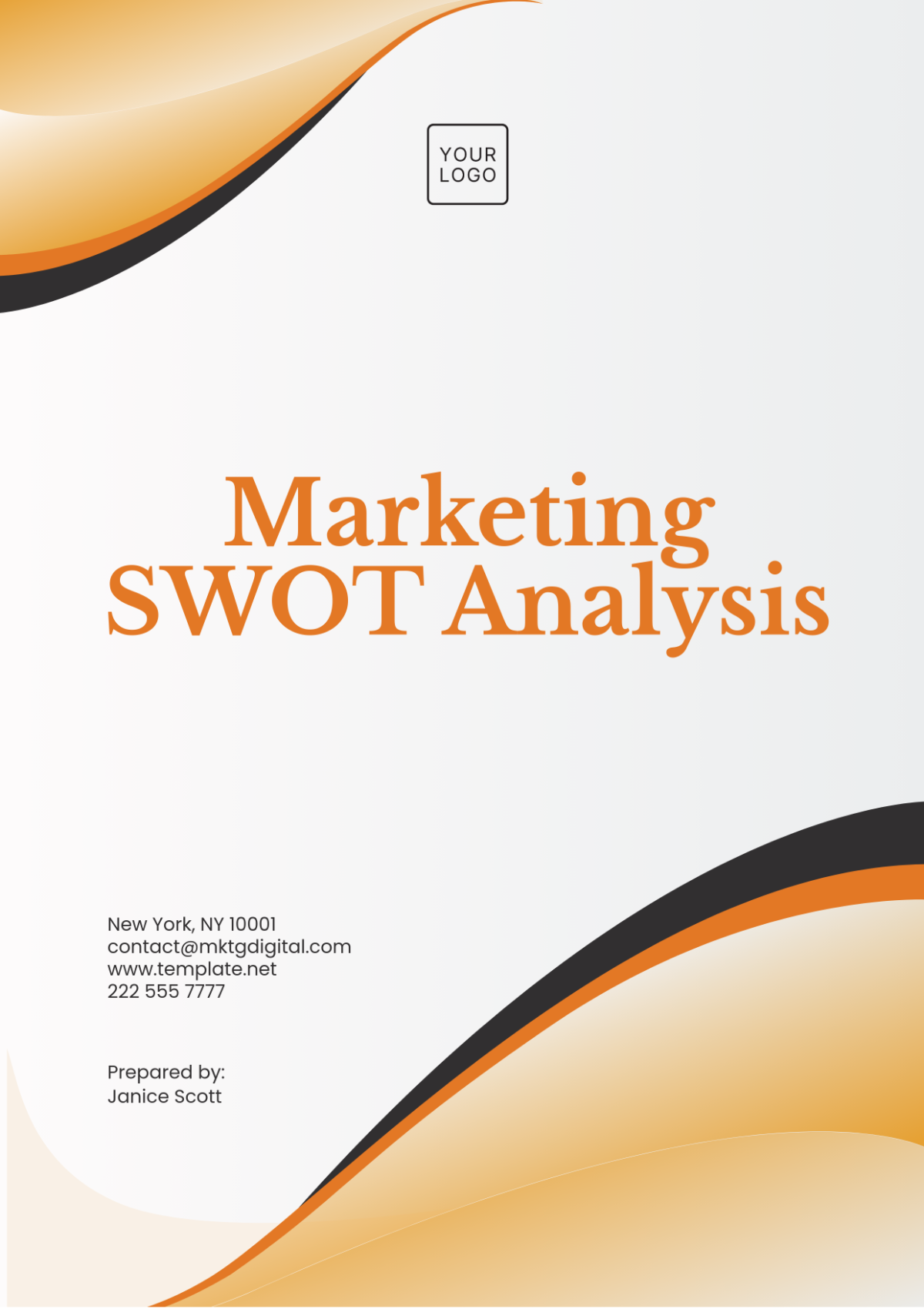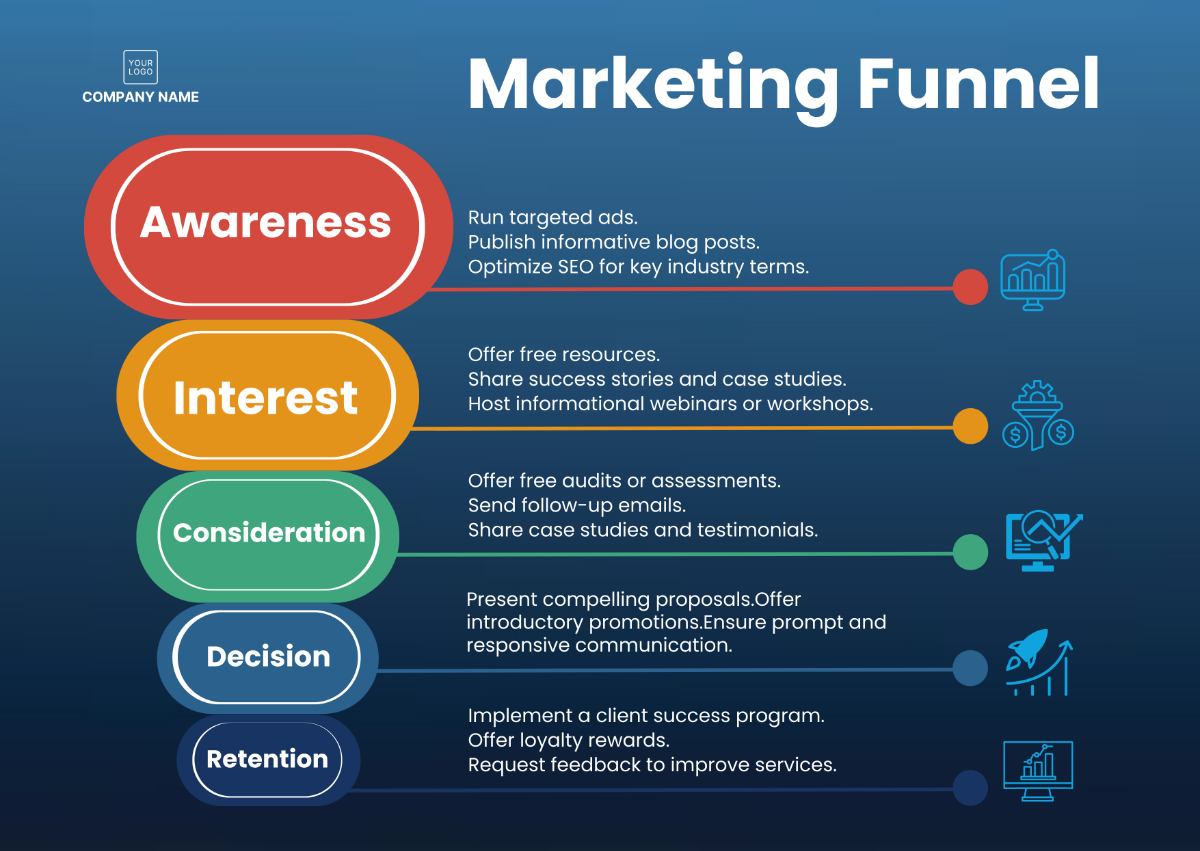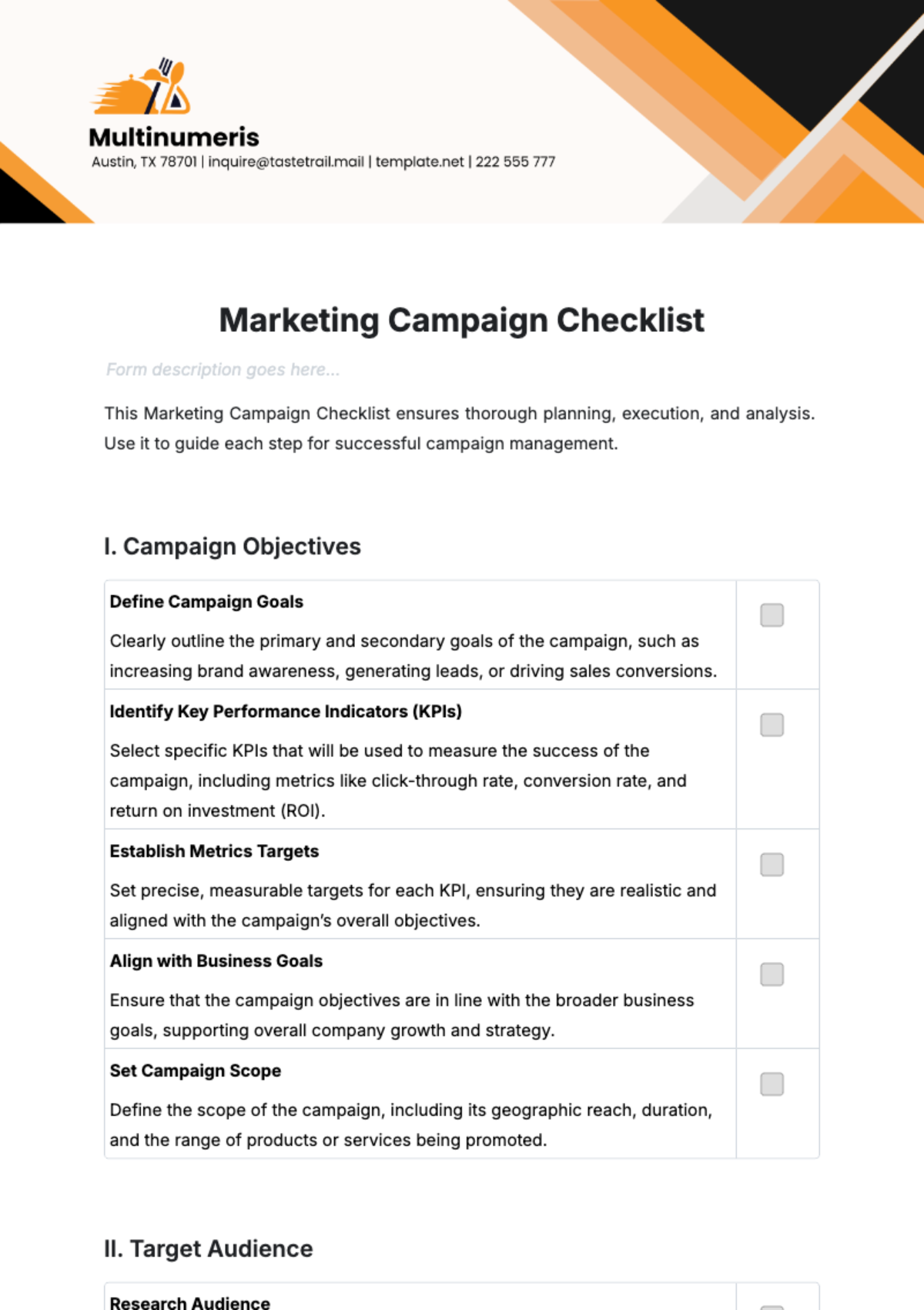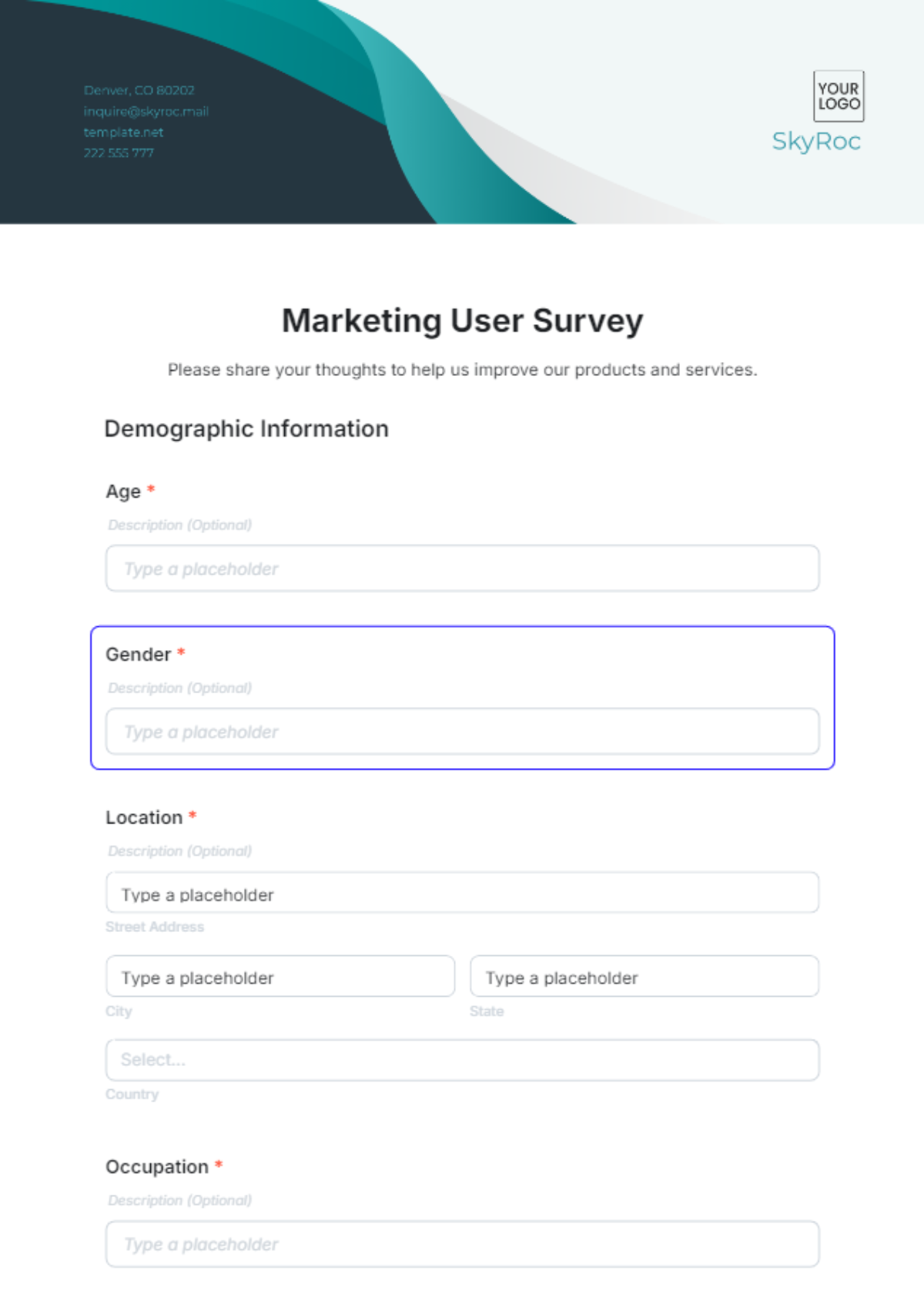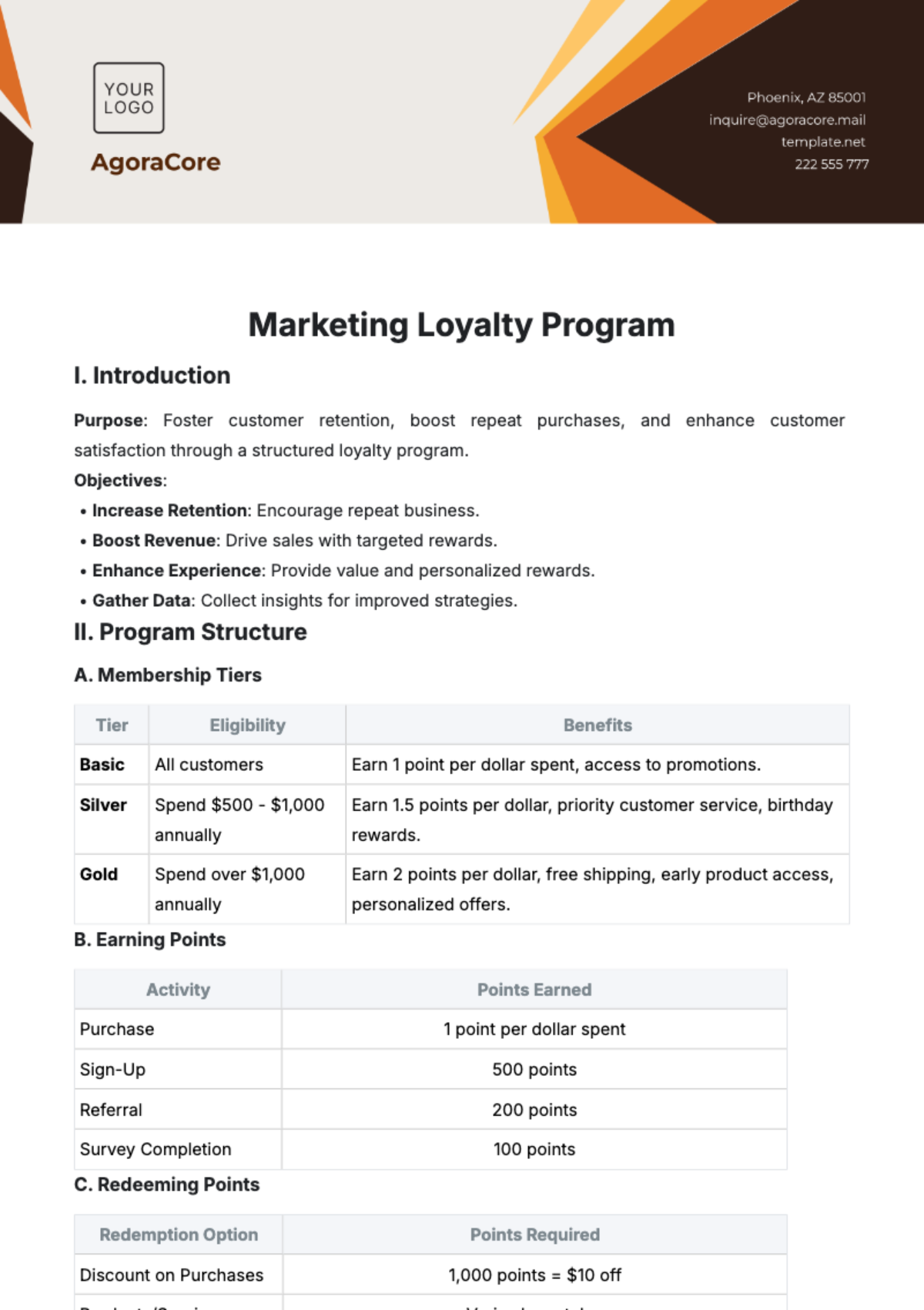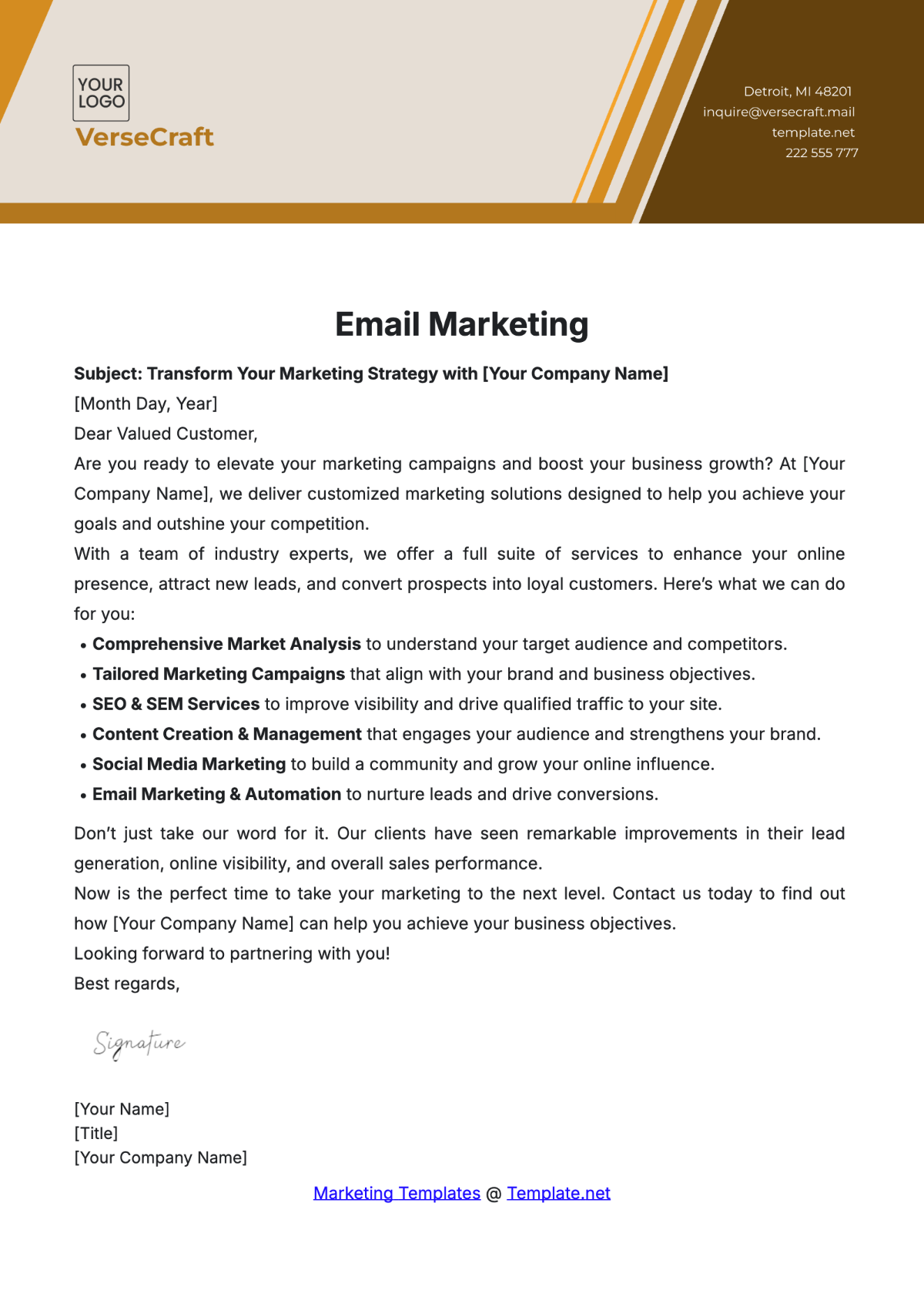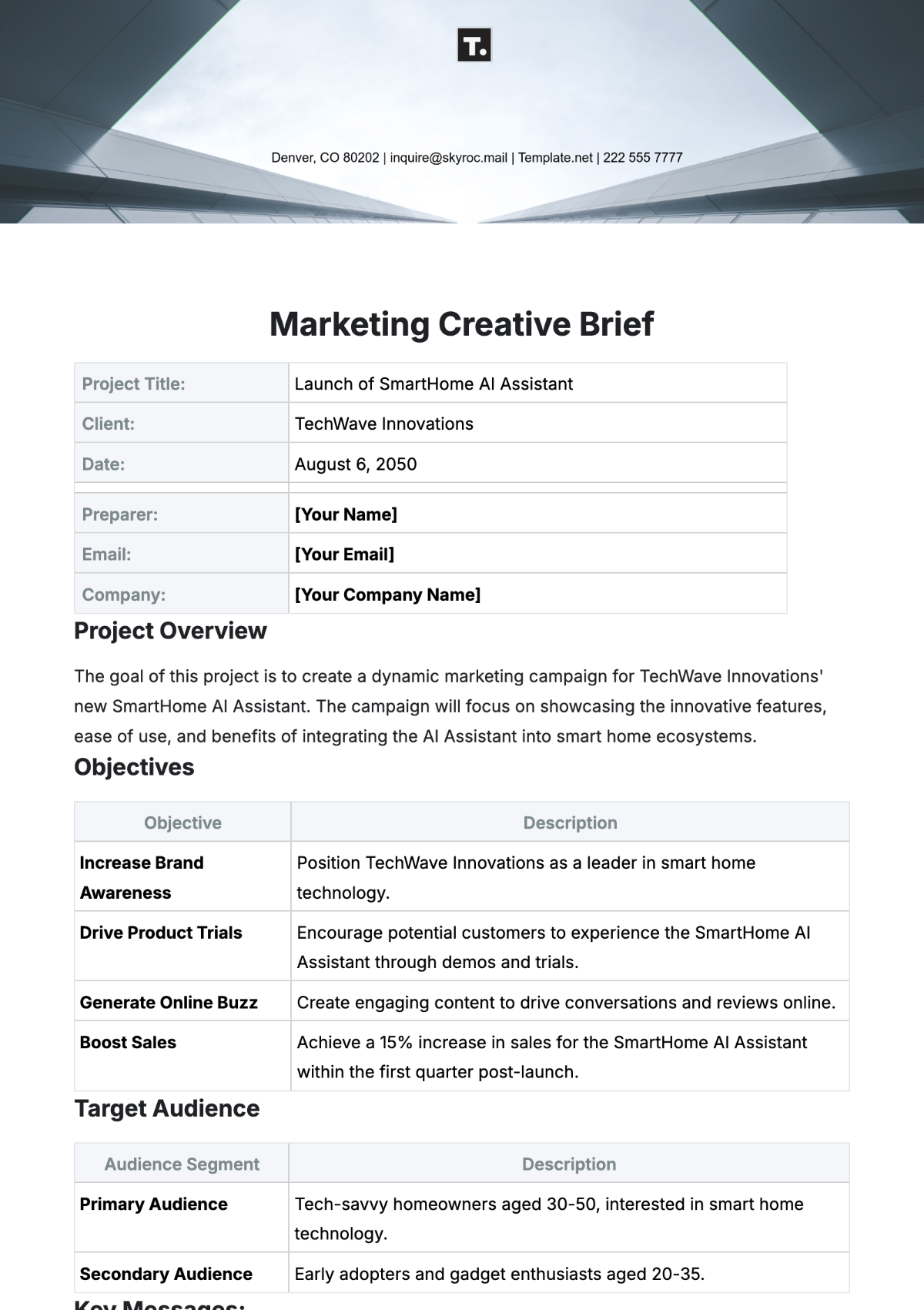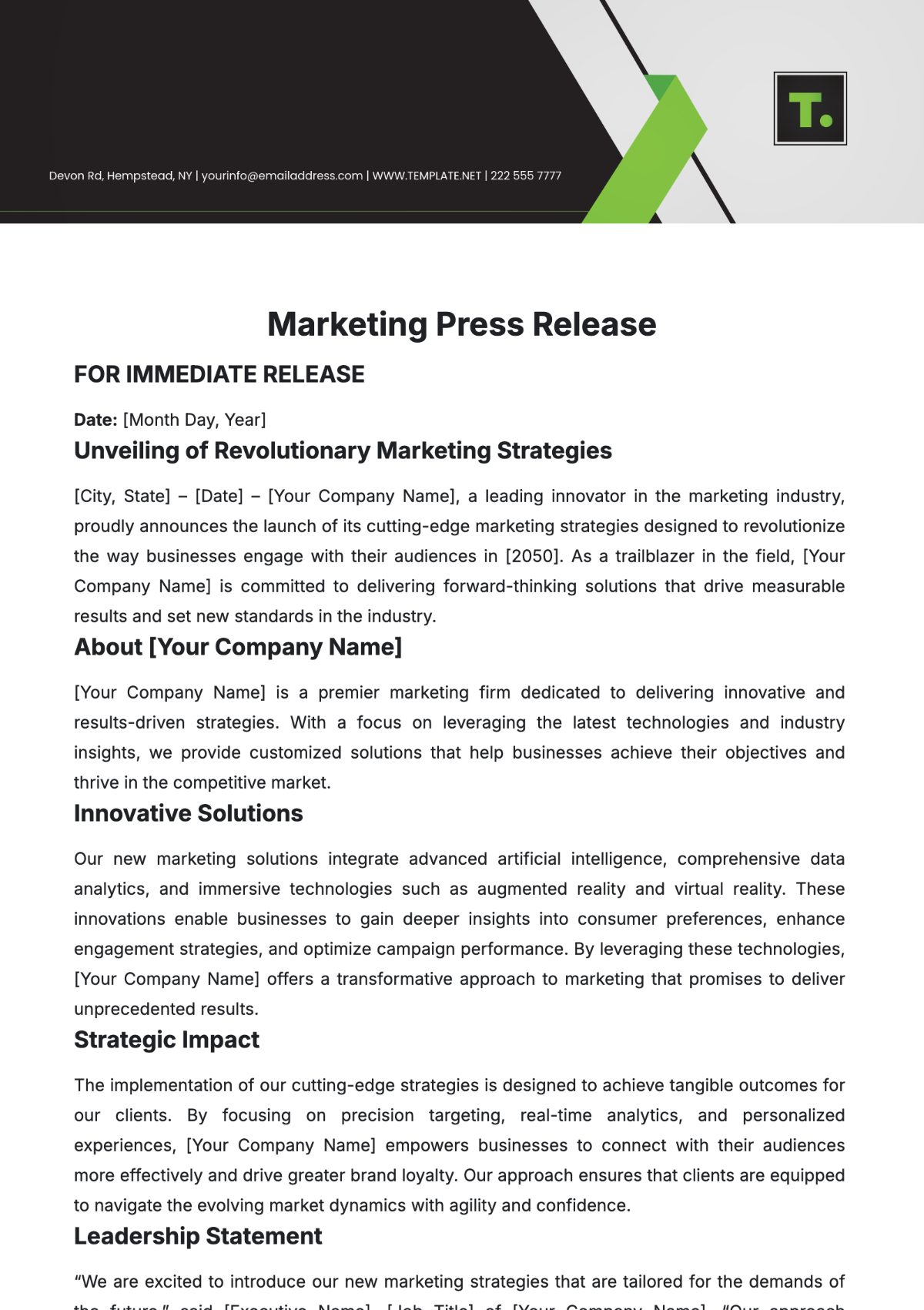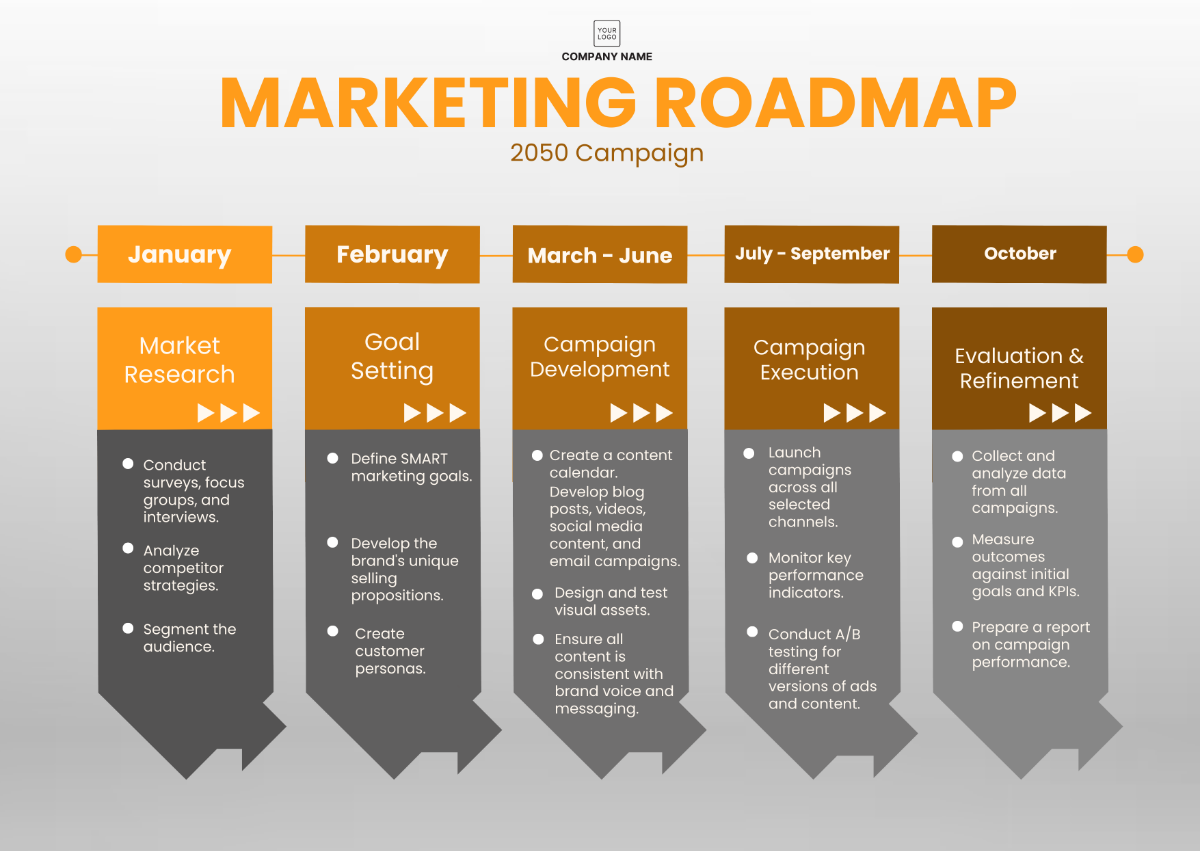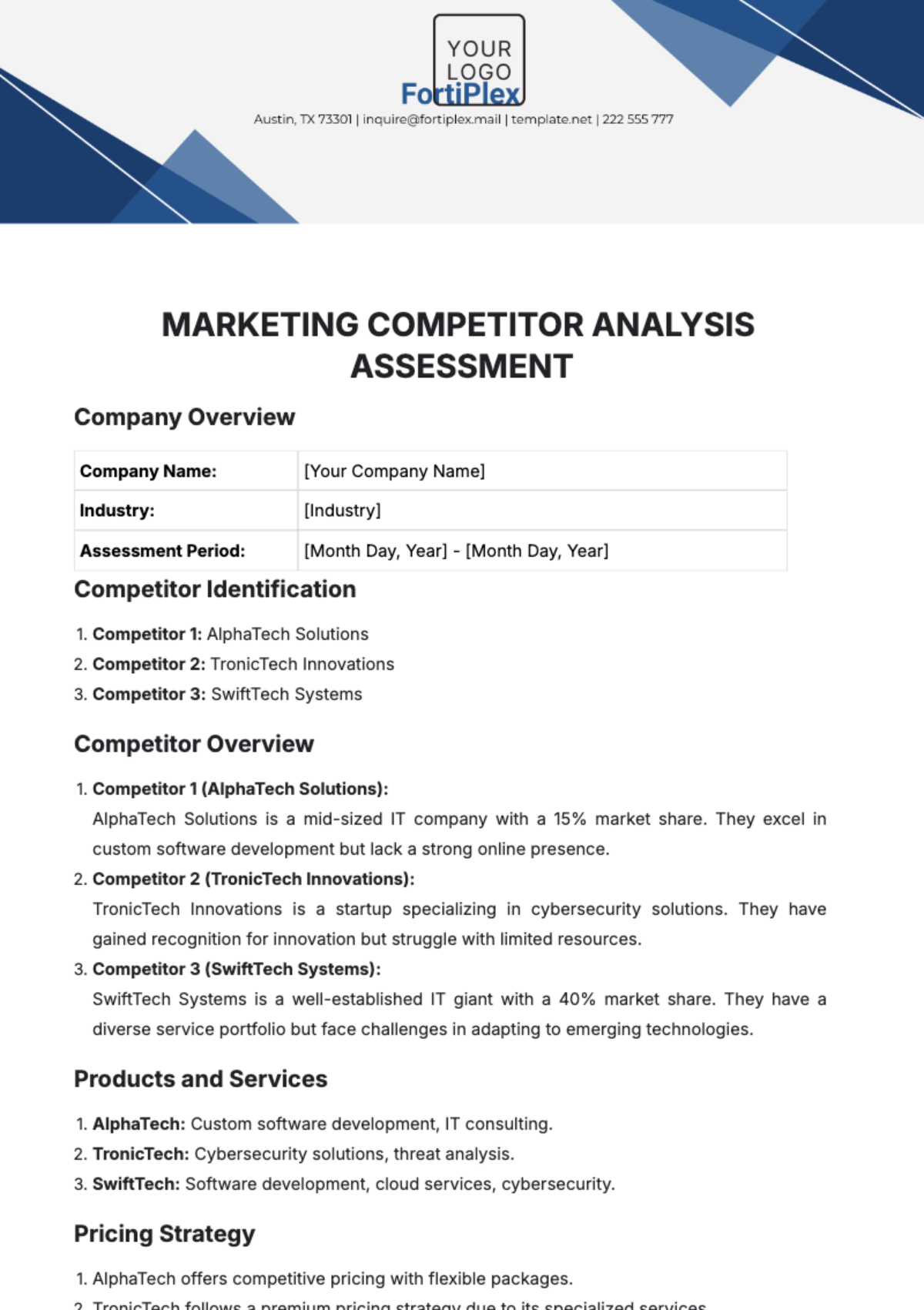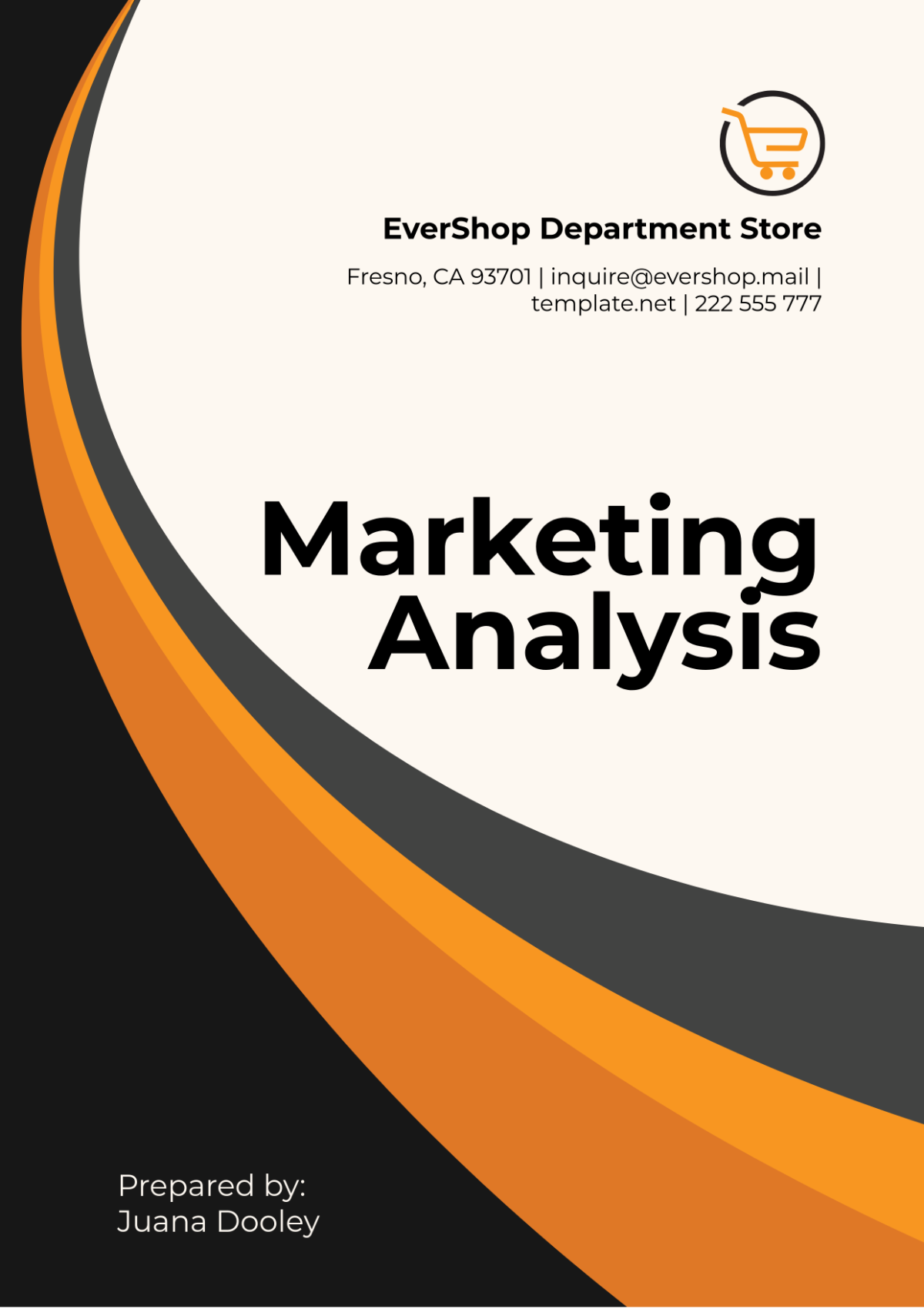Marketing Analytics Protocol Standards
I. Introduction
Welcome to [Your Company Name]'s Marketing Analytics Protocol Standards, a comprehensive guide designed to assist marketing professionals in effectively harnessing the power of data analytics to drive informed marketing decisions. In today's dynamic business landscape, data-driven insights play a pivotal role in optimizing marketing strategies and enhancing campaign performance.
This document outlines best practices, standards, and guidelines to ensure that your marketing analytics processes are not only efficient but also compliant with US marketing legal and standard regulations. Whether you are an experienced marketer or just beginning your analytics journey, this resource will serve as a valuable reference to unlock the full potential of your marketing efforts.
[Your Company Name] is committed to empowering marketing professionals, and this document is a testament to our dedication to excellence in the field of marketing analytics.
II. Data Collection
Accurate and ethical data collection is the foundation of effective marketing analytics. It ensures that the insights derived are reliable and compliant with legal standards. In this section, we outline the key principles and practices for data collection:
Data Sources: Identify the sources of data relevant to your marketing objectives, which may include customer interactions, website traffic, social media, email campaigns, and third-party sources. Specify how data is obtained and whether it adheres to privacy regulations.
Consent and Privacy: Ensure that data collection follows consent-based mechanisms and complies with data privacy regulations such as the General Data Protection Regulation (GDPR) and the California Consumer Privacy Act (CCPA). Clearly communicate data usage and opt-out options to individuals.
Data Accuracy: Implement procedures to maintain data accuracy by regularly verifying and cleaning datasets. Document data quality standards and practices for maintaining clean and reliable data.
Data Security: Prioritize data security by adopting encryption, access controls, and secure data storage practices. Define protocols for handling sensitive information and establish a breach response plan.
Retention Policies: Develop data retention policies that align with legal requirements and business needs. Specify how long data will be stored and when it will be deleted.
Documentation: Maintain thorough documentation of data collection processes, including data sources, collection methods, and the purpose of data usage.
Compliance Checks: Regularly review data collection practices to ensure they comply with evolving legal and ethical standards.
By adhering to these guidelines, [Your Company Name] ensures that data collected for marketing analytics is not only valuable but also ethical and legally sound.
III. Data Sources
Effective marketing analytics relies on a diverse range of data sources to gain valuable insights into customer behavior and market trends. It is crucial to identify and manage these sources systematically. Here are key considerations for data sources:
Primary Sources: [Your Company Name] primarily collects data from customer interactions, website analytics, and internal databases. Specify any other primary sources relevant to your marketing strategy.
Secondary Sources: Additionally, we may utilize third-party data providers, industry reports, and publicly available data. Clearly define the sources, their reliability, and terms of use.
User-Generated Content: Social media platforms and online reviews can serve as valuable sources of unstructured data. Ensure guidelines for ethical use and monitoring of user-generated content.
Data Aggregation: Describe the process of aggregating data from various sources to create a unified dataset. Highlight any tools or technologies used for this purpose.
Real-time Data: If applicable, detail the incorporation of real-time data feeds into your analytics process, emphasizing the relevance and timeliness of this information.
Data Licensing: Specify any licensing agreements or contracts with data providers, outlining the terms of usage, data sharing, and compliance with data protection laws.
Quality Assurance: Emphasize the importance of data quality checks to maintain accuracy and reliability in all sourced data.
IV. Data Integration
Effective marketing analytics relies on the seamless integration of data from various sources into a unified, actionable dataset. This integration process ensures that insights are comprehensive and reliable. Key considerations for data integration include:
Data Mapping | Create a clear mapping of data fields from different sources to ensure consistency and compatibility. |
ETL Processes | Describe any Extract, Transform, Load (ETL) processes used to clean, format, and merge data from diverse sources. |
Data Warehousing | If applicable, specify the data warehousing solutions utilized to store and manage integrated data. |
Real-time Integration | Discuss any real-time data integration mechanisms in place to enable up-to-the-minute insights. |
Data Validation | Explain the procedures for data validation and quality checks post-integration to maintain data accuracy. |
Automated Workflows | Detail any automated workflows or scripts used to streamline the integration process. |
By effectively integrating data, [Your Company Name] ensures that marketing professionals have access to a unified dataset, enabling them to make data-driven decisions with confidence.
V. Data Quality Assurance
Data integrity is paramount in marketing analytics. Ensuring that data is accurate, consistent, and reliable is essential for making informed decisions. Key practices for data quality assurance include:
|
|
By upholding rigorous data quality assurance measures, [Your Company Name] ensures that marketing analytics efforts are built on a solid foundation of reliable data.
VI. Data Analysis
Effective data analysis is at the core of deriving actionable insights from your marketing data. [Your Company Name] encourages a systematic approach to data analysis, encompassing the following key principles:
|
|
Effective data interpretation is crucial for turning data into actionable insights. Below is a bar graph illustrating customer engagement scores by marketing channel. This visual representation simplifies complex data, facilitating a better understanding of customer engagement trends and enabling informed marketing decisions.
VII. Reporting and Visualization
Effective communication of insights is essential in leveraging data analytics for informed marketing decisions. This section outlines the principles for reporting and data visualization:
Develop concise and clear reports that highlight key findings, trends, and actionable recommendations.
Utilize a variety of visualization techniques, including graphs, charts, and dashboards, to present data in an easily understandable format.
Tailor reports and visualizations to the specific needs and preferences of stakeholders, ensuring relevance.
Define reporting schedules to ensure timely access to insights, whether it's daily, weekly, or monthly.
Consider interactive dashboards for real-time access to data, allowing users to explore insights independently.
VIII. Data Security and Compliance
Data security and compliance are paramount in our marketing analytics protocols. This section underscores our commitment to safeguarding data and adhering to legal standards. Additionally, we introduce our comprehensive Breach Response Plan, ensuring a swift and effective response to any data security incidents.
IX. Data Retention and Archiving
Managing data retention and archiving practices is essential to ensure compliance, optimize storage, and facilitate data retrieval when necessary. [Your Company Name] adheres to the following principles:
Data Classification: Categorize data based on its sensitivity and relevance to determine retention periods.
Legal Compliance: Comply with data retention laws and regulations, retaining data only for as long as legally required.
Regular Review: Periodically review and update data retention policies to align with changing business needs and legal standards.
Archiving Procedures: Establish archiving processes for older data, ensuring it remains accessible and searchable.
Data Destruction: Define secure data destruction methods to safely dispose of data when its retention period expires.
Documentation: Maintain comprehensive records of data retention and archiving activities, including the rationale behind retention periods.
By following these principles, [Your Company Name] ensures responsible data management while meeting legal requirements and optimizing data storage resources.
X. Documentation and Training
Documentation and training are cornerstones of effective data analytics practices. At [Your Company Name], we recognize their crucial role in ensuring that data analytics processes are not only well-defined but also consistently adhered to by our team.
Comprehensive Documentation: We maintain clear, up-to-date documentation encompassing data analytics procedures, methodologies, and standards. This documentation serves as a reference point, fostering consistency and aligning our team's efforts with best practices.
Robust Training Programs: We invest in comprehensive training programs designed to educate employees on data handling, privacy regulations, and compliance requirements. Our goal is to equip team members with the knowledge and skills necessary to navigate the intricacies of data analytics confidently.
Continuous Learning: We encourage a culture of continuous learning, facilitating ongoing skill development. Our team stays current with the latest analytics tools and techniques, ensuring that we remain at the forefront of industry trends.
Accessibility and Dissemination: We make sure that all documentation and training materials are readily accessible to all relevant team members. This ensures that everyone has the resources needed to excel in the realm of marketing analytics.
By prioritizing robust documentation and training, [Your Company Name] empowers our team with the knowledge and resources required to excel in marketing analytics while upholding compliance and maintaining high-quality standards.
Marketing Templates @ Template.net


